The pregnancy diet for the first trimester includes healthy and versatile foods full of nutrients.
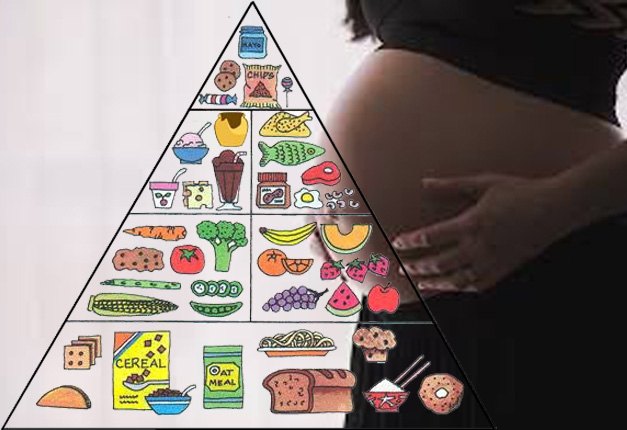
First-trimester pregnancy diet
The first trimester is a time of rapid baby growth, therefore, nutrient requirements increase. The first trimester is also a time of morning sickness when most pregnant women struggle to eat properly. But, proper nutrition is crucial for the health of you and your baby!
Has your craving for food increased? In the first trimester, you do not need more calories than before pregnancy! That’s why in terms of food intake, a pregnancy diet for the first trimester should not differ from your previous diet. With proper and healthy nutrition, you enter all the necessary nutrients for both!
Baby’s Little Place Tip: If you are facing morning sickness, ginger products or salty crackers may help. Keep a pack of fresh crackers on your nightstand, and try eating one before getting out of bed. Whole Grain crackers are even a better choice!
In the first trimester, your baby grows at super speed. Although you do not have a belly yet, it’s a time of big cell growth for the baby. Try to eat foods with high nutritional values on a daily basis – fruit, vegetables, carbohydrates, proteins, etc.
In your early pregnancy, your body is doing overtime, so try some foods that will relieve your fatigue. Usually, it helps to combine proteins with carbohydrates. You can try hummus, whole-grain products, a slice of cheese with an apple, or some tomato juice. Eat cereals with milk and banana, as they are also highly recommended during pregnancy.
Healthy and balanced nutrition are important in every stage of a woman’s life, in particular, before and during pregnancy and lactation.
However, an otherwise healthy diet can include foods, which are not suitable for a pregnant woman and her baby. Some of these foods are raw or undercooked eggs, soft cheese, sushi, raw or undercooked meat & poultry, etc. You can read what foods are better to avoid in our article HERE.
A healthy dessert that you can include in your pregnancy diet
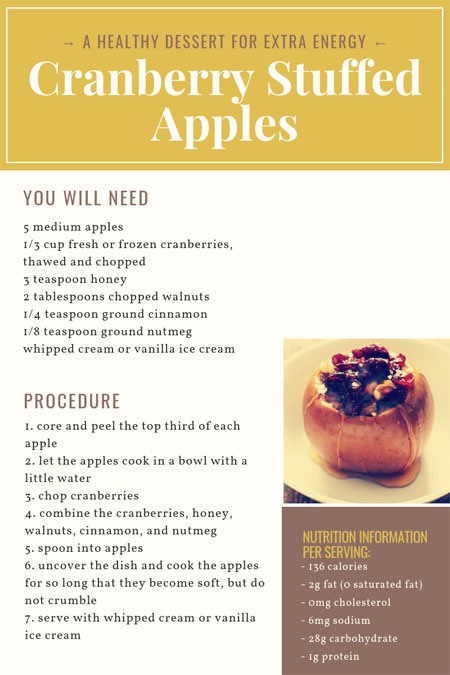
The Importance of a Balanced Diet in Pregnancy
Eating and gaining weight during pregnancy is all about finding the balance between sufficient and appropriate nutrient intake that you and your baby need. Research has shown that the consequences of excessive weight gain during pregnancy, could cause gestational diabetes, hypertension, preeclampsia, eclampsia, and a greater probability you will have a Cesarean section.
It is important that you are aware of what you eat, and therefore focus on the quality of your diet!
A pregnancy diet in the first trimester should contain the following food groups:
- vegetables
- fruits
- grain
- non-fat meat and poultry
- dairy products
Fruits and Vegetables in pregnancy diet
As a part of a healthy pregnancy diet, you should eat at least five portions of fruit and vegetables per day. That will provide the nutrients needed for your own health and your baby’s development.
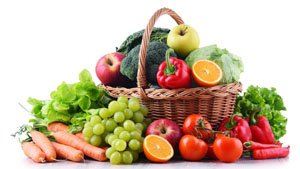
Best fruits in pregnancy:
- Pineapple
- Apple
- Banana
- Pear
- Strawberries
- Blueberries
- Raspberries
- Cherries
- Mandarin
- Peach
- Grapes
- Lemons and oranges
Best vegetables in pregnancy
- Broccoli
- Sweet potato
- Spinach, kale, chard, arugula and other dark leafy greens
- Tomatoes
- Lentil
- Green pea
- Beetroots
- Bell pepper
- Asparagus
Grains in the pregnancy diet
Any food made from wheat, rice, cornmeal, oats, barley or another cereal grain is a grain product. Bread, oatmeal, cereals, pasta or tortillas are the most common examples of grain products.
Carbohydrates found in grains are the main source of energy for pregnant women. But, at least half of all the grains eaten should be whole grains! Products labeled “refined” aren’t as beneficial to you or your baby.
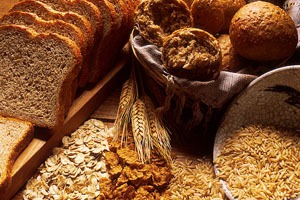
Grains are an ideal meal, as they contain many vitamins and minerals and almost zero calories. A single meal of whole grains per day covers the daily need for fiber, magnesium and vitamin B6. They’re also especially good sources of iron, selenium, folic acid, niacin, and other B vitamins.
One serving:
- 1 slice of whole wheat bread
- 5 whole wheat crackers
- 2 rice crispbreads
- 1 cup ready-to-eat whole grain cereal
- ½ cup of cooked rice
- 1 cup of ready-to-eat cereal
- 1/2 cup cooked pasta
- ½ cup cooked bulgur
- ½ cup cooked oatmeal
- 3 cups popped popcorn
- 1 pancake
Meat in pregnancy diet for the first trimester
The meat contains valuable nutrients that are used in large quantities by pregnant women: iron, vitamin B12, and zinc. Nevertheless, the appropriate amount of meat in the diet is essential for a balanced diet during pregnancy.
The best choices for you are lean beef, poultry, and pork. The preparation is also very important! You should use only small amounts of fat for preparation. Meat needs to be well prepared and not undercooked! Eating only cooked and roasted meat, reducing the risk of Salmonella infection.
Since the meat contains cholesterol, do not eat it more than three times a week!
Dairy products in pregnancy diet for first trimester
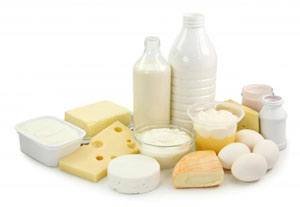
Dairy products (cottage cheese, cheese, yogurt, kefir, buttermilk) contain proteins, fats, lactose, vitamins (B12, A, D) and minerals. They’re great calcium source which helps to build bones.
Due to the formation of the skeleton and teeth of the fetus, larger amounts of calcium should be ingested during pregnancy. The recommended dose is 1000 mg per day. Pregnant women under twenties should receive even more calcium, 1200 mg daily.
But be careful with raw dairy products, as they can cause listeriosis.
If you consume less calcium than the recommended amount, you can also enrich your diet with calcium-rich mineral water.
Gaining weight in the first trimester
Your baby is still very small, so you should gain only about 2-4 pounds during the first trimester. Some pregnant women may even lose some weight, as they feel resistance to food. That is normal, but the weight must grow faster in the second and third trimesters. For now, focus on eating several times a day. Meals should be light and rich in nutrients (avocado, yogurt, bananas, whole grains or crackers).
If you already gained a few pounds more, it is not all lost yet. From now on try to be more cautious and eat healthier food in smaller portions several times a day.
Folic acid – a first trimester essential
Ideally, you would intake higher amounts of folic acid already before pregnancy. If you didn’t, start immediately and everything should be all right.
A sufficient intake of folic acid (vitamin B9) is extremely important, especially in the first trimester of your pregnancy.
Folic acid is involved in the development of important baby’s body functions.
The most folic acid is in dark green leafy vegetables (spinach, salad, parsley, broccoli, asparagus, Brussels sprouts, ..), oranges, liver, yeast, legumes, hazelnuts, and others.
Folic acid is thermal and light-sensitive, therefore you should eat fresh fruit and vegetables, or cooking them for only a short time (blanching).

I think this is a miss type “ The most folic acid is in dark green leafy vegetables (spinach, salad, parsley, broccoli, asparagus, Brussels sprouts, ..), oranges, liver, yeast, legumes, hazelnuts, and otters”
I am sure that you meant others and not “otters”.
Yes, it was. Thanks for letting us know!